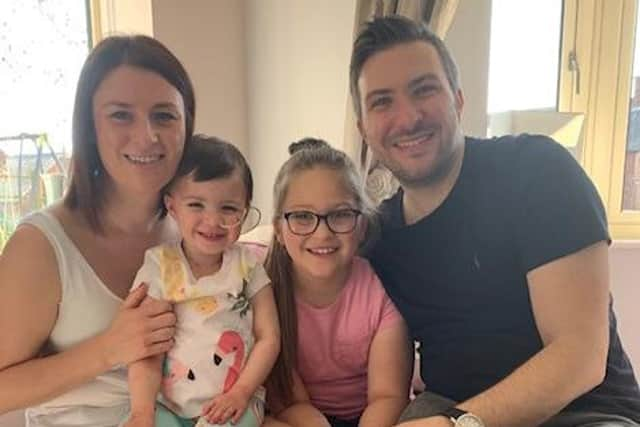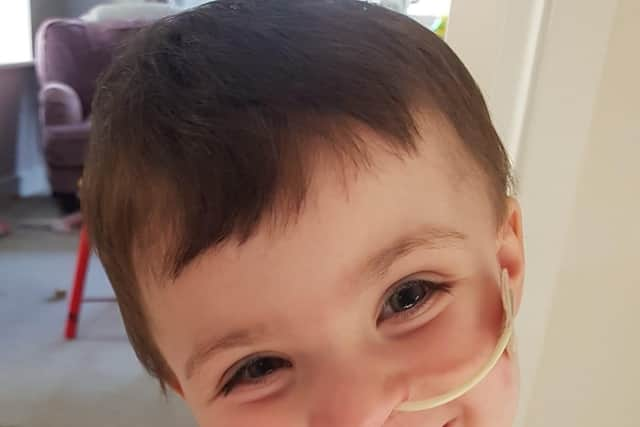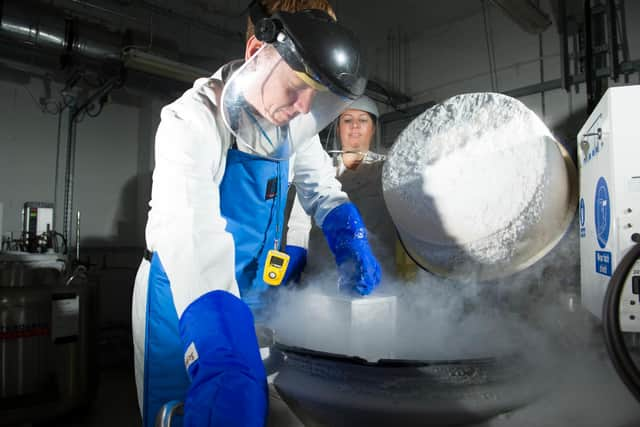Edinburgh University research helps preserve fertility of children with cancer


An Edinburgh University professor is helping young people diagnosed with cancer to preserve their ability to one day have children of their own.
As many as a quarter of children and young people with cancer will later experience infertility or reduced fertility as a result of harsh treatments, according to new research from Children with Cancer UK.
Advertisement
Hide AdAdvertisement
Hide AdMore than a fifth of families surveyed by the charity also said they had little to no information or support regarding long-term side effects of treatment, such as infertility.


Rod Mitchell, Professor of Developmental Endocrinology at Edinburgh University’s MRC Centre for Reproductive Health, specialises in preserving the fertility of boys treated for cancer before puberty.
His ground-breaking research, funded by Children with Cancer UK, offers the possibility of storing testicular tissue from boys with cancer whose treatment puts them at high risk of future infertility.
Adam*, 9, was diagnosed with medulloblastoma, a brain tumour, in 2018 when he was just 6.
Advertisement
Hide AdAdvertisement
Hide AdA few days after his diagnosis his parents met with a paediatric endocrinologist at the Royal Hospital for Sick Children in Edinburgh to discuss his fertility, which may have been impacted by the gruelling 18 months of surgery, chemotherapy and proton beam therapy he was about to endure.


They approved a procedure to surgically remove and freeze part of one of Adam’s testicles in the hope that future advances in science would help him conceive naturally using the tissue.
“We have a signed and sealed letter from his doctor to give to him when he’s 16 to explain the procedure,” said his mother Katy.
“It gives us peace of mind to know that in 20 years’ time the treatment might be available and he may be able to be a dad. I’d advise anyone that has this option to go for it – it’s given us a glimmer of hope,” Katy said.
Advertisement
Hide AdAdvertisement
Hide AdProfessor Mitchell said: “As clinical researchers working in childhood cancer, we are acutely aware of the long-term side effects that the treatments can cause, which often include infertility.
“Our clinical research programme is focused on preventing infertility as a result of cancer treatment, either by altering treatments to make them less damaging to future fertility, or by freezing and storing testicular or ovarian tissue before treatment.
“Stored tissue will be available to patients when they reach adulthood, with the aim of restoring fertility. This provides some much-needed optimism around the time of diagnosis for children and their families.”
Alice Latham, 3, from Derbyshire, was diagnosed with high-risk neuroblastoma in 2019.
Advertisement
Hide AdAdvertisement
Hide AdAs part of her treatment, which she finished in May, one of her ovaries was removed and frozen.
While there is a risk the ovary may have some cancerous cells in it, her parents hope it will increase her chances of having a child in future.
“To have to tell our daughter who has already been through so much that she may never be
able to have children is unimaginable, but as a parent of a two-year-old daughter with
Advertisement
Hide AdAdvertisement
Hide Adneuroblastoma, you have no choice – it was either her life or her reproductive life in the
future – this option gave us some hope,” said her father Jamie Latham.
*Some names have been changed.